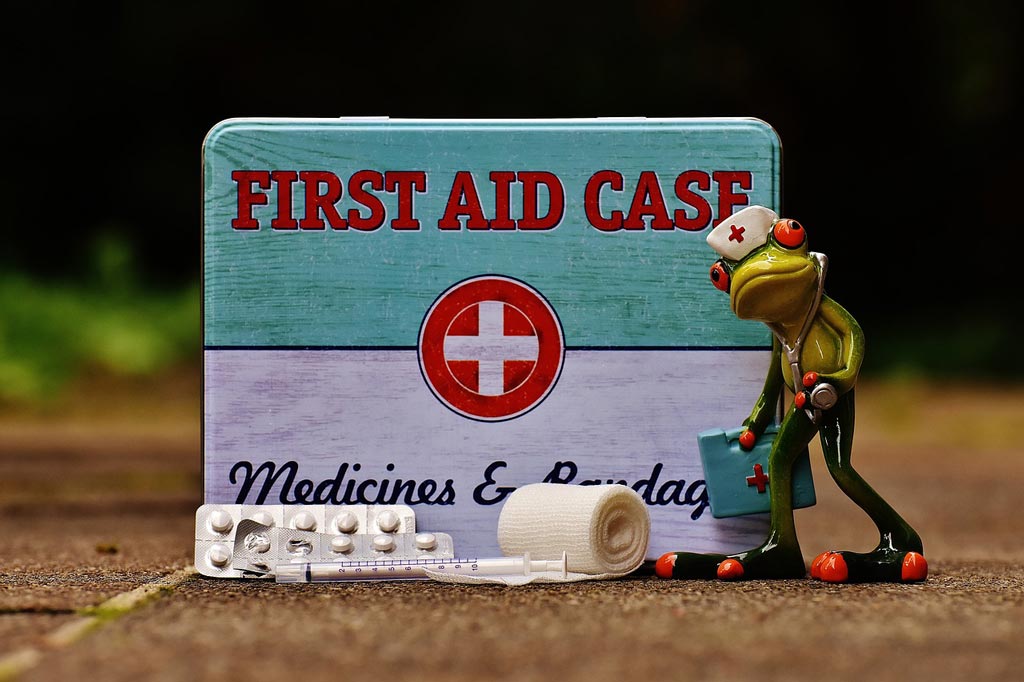Summary
First Aid Kits for Travel
Traveling in the post-COVID-19 world necessitates an updated first aid kit. Essential components now include an N95 surgical face mask, hand sanitizer, alcohol wipes, and disinfectant wipes. These wipes are useful for sanitizing armrest and table trays on airplanes. Moreover, incorporating a digital thermometer is prudent for checking fevers, and Canadian travelers should consider carrying Rapid COVID tests, which are available for free in Canada.
Disclosure: This checklist does not replace professional medical advice. Consulting a travel health clinic is highly recommended for personalized guidance.
Many items can be sourced from a basic first aid kit available at outdoor stores. Begin with a pre-stocked kit and customize it with personal essentials, ensuring you maintain a lightweight setup.
First Aid Kit Checklist
Here is a concise checklist of basic items that we recommend including in your first aid kit:
- Tweezers: Essential for removing splinters to prevent infection. Consider a quality pair like these Tweezers.
- Gauze Pads: More effective than band-aids for larger cuts, paired with surgical tape for securing.
- Surgical Tape: Perfect for attaching gauze pads and supporting minor injuries.
- Allergy Medication: Keep Benadryl for severe reactions and Claritin for environmental allergies.
- Antihistamine Cream: Useful for treating insect bites, like those experienced by Dave from fire ants.
- Surgical Gloves: Handy in unexpected situations, especially after encounters with insects.
- Scissors: Small scissors can cut gauze and perform various tasks while on the go. A travel size pair is ideal.
- Insect Repellent: Critical for protection against mosquito-borne diseases. Natural products are recommended.
- Sunscreen: Prevent serious sunburns; consider wearing protective clothing over heavy application.
- Lip Balm: Alleviates sunburned and chapped lips, preferably with SPF.
- Gold Bond: Relieves heat rashes, useful in hot climates.
- Anti-diarrheal: Keep Imodium handy for unexpected stomach issues.
- Ibuprofen and Decongestants: Regular pain relief items are essential for any trip.
- Nexium or Zantac: Addresses indigestion common during culinary adventures.
- Eye Drops: Essential for allergy sufferers and contact lens wearers.
- Essential Oil: Tiger Balm or peppermint oil for sore muscles and headaches.
Adventure Travel Items for First Aid
While not typically needed in standard kits, these items are excellent to have when exploring remote areas or developing countries:
- Rehydration Tablets: Always pack these to combat dehydration quickly, we prefer the Nuun brand.
- Anti-nauseant Tablets: Gravol is effective for motion sickness.
- Syringe and Suture Kit: Ensures you have sterile supplies for emergencies in remote regions.
- Moleskin: A staple for hikers to protect feet from blisters; keep some travel scissors handy.
Cuts and Infections
Antiseptic Wipes: Vital for cleaning wounds. Consider carrying a saline solution for emergencies.
Fucidin Cream: Essential antibiotic cream for treating infections; Polysporin serves as a suitable alternative.
Prescription Medication
Before you travel, ensure that you have any necessary prescriptions filled and stored correctly for border crossings. It’s important to visit a travel clinic for advice based on your itinerary. Below are prescriptions that can be beneficial:
- Malaria: Discuss options with a healthcare provider; Malarone is often preferred due to fewer side effects.
- Altitude Sickness: Carry Apo-Acetazolamide to alleviate symptoms; we use Diamox for climbing expeditions.
- Diarrhea: Keep Ciprofloxacin handy to combat bacterial infections when options are limited.
- Cold Sores: Acyclovir can be effective for managing outbreaks.
Vaccines
Consult a travel clinic about necessary vaccines well in advance of your trip since some require multiple doses. The Government of Canada lists recommended vaccines for various destinations.
- COVID-19
- Hepatitis A & B
- Measles
- Yellow Fever
- Typhoid
- Japanese Encephalitis
- Influenza
- Rabies
Water
Staying hydrated while ensuring safe water consumption is crucial. Consider a purification system if clean water is unavailable:
- Water Purification Systems: A SteriPen or LifeStraw can help purify water efficiently.
- Water Purification Tablets: Opt for iodine-free tablets as a reliable backup.
If you are planning travel, a comprehensive first aid kit is essential for your safety. Build your kit gradually, starting with a basic setup from local stores, and tailor it based on your destination and activities. Safe travels!




